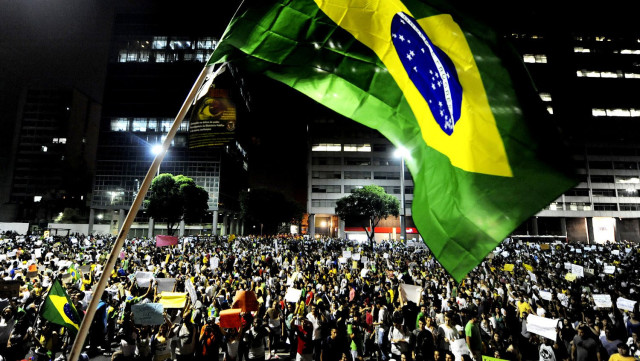The world is awash in oil and gas. Amazing. Less than two decades ago in 1998, the predictions were by this time in 2016 oil production would be past its peak. In fact the gloom and doom experts were called Oil Peakists. Note this from Science magazine back in 1998:
From Science magazine’s “The Next Oil Crisis Looms Large—and Perhaps Close,” Aug. 21, 1998:
This spring . . . the Paris-based International Energy Agency (IEA) of the Organization for Economic Cooperation and Development (OECD) reported for the first time that the peak of world oil production is in sight. Even taking into account the best efforts of the explorationists and the discovery of new fields in frontier areas like the Caspian Sea . . . sometime between 2010 and 2020 the gush of oil from wells around the world will peak at 80 million barrels per day, then begin a steady, inevitable decline, the report says.
However, technology, especially here in the U.S., relegated that prediction to the proverbial dust bin of history. With the private developments of revolutionary shale fracking and horizontal drilling technology, vast new energy resources were opened up in places like North Dakota, Ohio, Pennsylvania and even in the older Permian field in West Texas. The U.S. is now pumping 9 million barrels of oil a day, and trillions of cubic yards of gas. We are no longer dependent on importing Middle East oil. In fact much of the oil that we import comes from our neighbors Canada and Mexico.
In the wake of lifting sanctions against nuclear Iran, oil is beginning to flow again to the European Union from Tehran which says it could add another 500,000 barrels in production this year. U.S. oil is also flowing to Europe now that the 43 year old ban on oil exports was lifted and signed in law late in 2015. The first shipment of sweet crude drawn from the Eagle Ford Shale field in South Texas left the port of Corpus Christi, Texas on New Year’s eve and landed at the port of Marseilles on Friday. Another shipment out of Houston made it to Rotterdam on Thursday. A third one out of Houston is on its way to Marseilles. The oil is the equivalent of the so-called Saudi light or sweet crude which doesn’t require as much refining producing profit margins for the refiners.
So, why do we have this glut?
The world’s economies are not growing as fast or rather slowing down, especially in the big consumer of raw materials and energy, China. China’s economy and trade is impacting on those exporters of commodities like oil, gas, copper, aluminum and iron ore like Australia, Brazil, Canada, Russia, Venezuela and African countries. Where China was growing at a purported 10 percent plus, annually, the evidence is it has fallen to less than a third of that towering inflated level. We have come to realize those growth estimates were based on questionable figures prepared by the Chinese government. Some economic experts suggest the annual growth in GDP may be less than three percent. So with that news came the sudden plummeting in the world trading markets for commodities, especially oil.
There is also the great geo-resource political game in the Middle East going on between Saudi Arabia and Iran, and let’s not forget Russia. Saudi Arabia as the keystone in the OPEC oil Cartel is not listening to the complaints of the other members of the group at meetings in Vienna demanding that it reduce domestic production. It is pumping oil and still making money, because it costs less than $5 a barrel. This despite a yawning budget deficit of $98 billion. The Saudis have an estimated $600 billion in hard currency reserves, which provides a cushion to ride out the geo-political storm. They are using the oil weapon to beat back competitors including Iran across the Persian Gulf, Russia which has military in Syria supporting the Assad regime, and the newly resurgent producer, the US. Russia, as Shoshana Bryen of the Washington, D.C.-based Jewish Policy Center pointed out in a recent interview, mispriced its budget at $119 a barrel of oil, then redid the numbers at $87 dollars only to see it plummet to less than $30 at one point.
So what is the impact here in the U.S.?
When was your last trip to fill up your car at the gas station? Here on the Gulf Coast in the U.S., regular unleaded gas is currently selling for less than $1.80 a gallon. That means savings to consumers who appear to be putting away the difference awaiting a return to a more confident economy. Diesel that at one point was priced at nearly $1 dollar a gallon above gasoline has shrunk to less than ten cents a gallon differential. That means that the cost for moving shipments via long haul truckers has gotten cheaper. It means that jet fuel cost is less reflected in the huge profits being declared by the major airlines. Some of that may be due to the lagging airline ticket surcharges that remain in place. However, the drop in oil production is also impacting the profit margins of rail carriers who minted money from train loads of combustible leaving the Bakken formation in North Dakota. The drop in oil prices occasioned by the glut also means that the cost of petro chemical feed stocks is enhancing profit margins for plastics,.
Remember, the discussion about lifting the 43 year old oil export ban?
One of the by-products of that was the convergent pricing of U.S. crude has converged with world pricing. If you went onto the COMDEX oil trading floor in lower Manhattan, you would see traders vying for futures contracts in West Texas Intermediate (WTI) versus Brent-the so-called North Sea crude oil benchmark. The lifting of the oil export ban in the U.S. virtually eliminated the difference making Brent the world standard. As of Friday, January 22, 2016 WTI was $32.19 per barrel for March 2016 deliveries, a 9.0 % jump, and Brent priced out of the London ICE was $32.18. Heavier grades like Canadian Tar sands or Venezuelan heavy sulfur crude require more refining to produce various products. These grades actually sell at discounts from those benchmarks by as much as five dollars.
Can we expect the oil glut to last? Hardly. The current excess supply will work itself off and oil futures will gradually begin to rise again. That will bring rigs on stream here in the U.S. to start producing again, it may cause Iran to produce more than the declared 500,000 barrels annually and the Saudis would just be minting more billions to add to its hard currency reserves. However, by mid century those fabled Saudi sweet crude reserves may likely begin to tail off. Energy, whether oil or gas will reflect the cyclical demands of the world economies. The U.S. stands in pretty good shape to weather the current volatility in trading markets; thanks to technology, entrepreneurial prowess and the lifting of the oil export embargo. Don’t panic and consider investing in contrarian values in the equity and debt markets. That is what the long term value investors do. They buy when values are relatively cheap compared to long term returns.
EDITORS NOTE: This column originally appeared in the New English Review. An earlier version was published in the Newsletter of the Lisa Benson Show National Security Task Force Newsletter, January 23, 2016.




